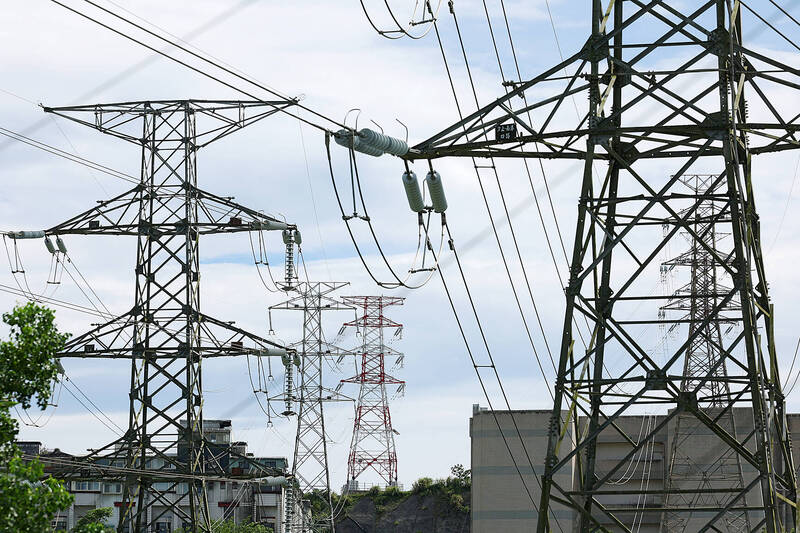Business
Taipower Adjusts Electricity Rates, Impacting 14 Million Customers

Taiwan Power Company (Taipower) announced an average electricity rate increase of 0.71 percent, affecting approximately 14 million households and small-scale businesses. The Ministry of Economic Affairs confirmed that this adjustment will take effect next month, while rates for industrial users will remain unchanged.
The average cost of electricity will rise from about NT$3.76 to NT$3.78 per kilowatt-hour (kWh). During a news conference, Deputy Minister of Economic Affairs Lai Chien-hsin explained that residential rates would increase by an average of 3.12 percent. This change is intended to better reflect Taipower’s rising power generation costs, which have averaged NT$3.80 per kWh since January.
Household users currently pay NT$2.77 per kWh, significantly lower than the actual generation costs. The recent rate increase is expected to generate an additional NT$6.4 billion (approximately US$211.8 million) in revenue for Taipower.
The adjustments for residential users will be tiered based on consumption levels. For households consuming less than 700 kWh monthly, the rate will increase by NT$0.1 per kWh. Those using between 701 kWh and 1,000 kWh will see a NT$0.2 hike, while households exceeding 1,001 kWh will face an increase of NT$0.4. For a family of four consuming 700 kWh a month, this translates to an additional NT$70 on their monthly electricity bill.
Small businesses that use less than 700 kWh will experience the same NT$0.1 increase, while those consuming more will not see any changes to their bills.
Despite the increases, Taipower’s vice president, Tsai Chih-meng, noted that the hike falls short of the 6.45 percent increase the company initially proposed to stabilize its finances. Although fuel prices have decreased, Taipower has accumulated losses of NT$417.9 billion. The company is also awaiting legislative approval for a NT$100 billion subsidy program, which adds to its financial strain.
Responses to the rate adjustments have been mixed. Paul Hsu, chairman of the General Chamber of Commerce of the Republic of China, described the increase as “mild” and acceptable, given the financial pressures on households and the potential impact on inflation. Meanwhile, the Chinese National Association of Industry and Commerce welcomed the decision to maintain rates for industrial users, viewing it as beneficial for local industries facing operational challenges.
However, some industry leaders, including Lin Por-fong from the Third Wednesday Club, expressed concerns that the rate increases provide only temporary relief. He emphasized the need for a comprehensive review of Taiwan’s energy policy, including a reconsideration of nuclear power options.
Additionally, Yu-Jia Li, chairman of the National Association of Small and Medium Enterprises, pointed out that the government has been cautious in curbing electricity rate hikes to avoid placing excessive burdens on the public and industries alike.
This latest adjustment reflects ongoing challenges in Taiwan’s energy sector and highlights the balancing act between financial sustainability for Taipower and the economic well-being of its customers.
-

 Lifestyle3 months ago
Lifestyle3 months agoHumanism Camp Engages 250 Youths in Summer Fest 2025
-

 Sports3 months ago
Sports3 months agoDe Minaur Triumphs at Washington Open After Thrilling Comeback
-

 Business4 months ago
Business4 months agoKenvue Dismisses CEO Thibaut Mongon as Strategic Review Advances
-

 Sports4 months ago
Sports4 months agoTupou and Daugunu Join First Nations Squad for Lions Clash
-

 Top Stories4 months ago
Top Stories4 months agoColombian Senator Miguel Uribe Shows Signs of Recovery After Attack
-

 World4 months ago
World4 months agoASEAN Gears Up for Historic Joint Meeting of Foreign and Economic Ministers
-

 Business4 months ago
Business4 months agoOil Prices Surge Following New EU Sanctions on Russia
-

 Health3 months ago
Health3 months agoNew Study Challenges Assumptions About Aging and Inflammation
-

 Entertainment3 months ago
Entertainment3 months agoDetaşe-Sabah Violin Ensemble Captivates at Gabala Music Festival
-

 Entertainment3 months ago
Entertainment3 months agoBaku Metro Extends Hours for Justin Timberlake Concert
-

 Business4 months ago
Business4 months agoU.S. House Approves Stablecoin Bill, Sends to Trump for Signature
-

 Top Stories4 months ago
Top Stories4 months agoRethinking Singapore’s F&B Regulations Amid Business Closures









